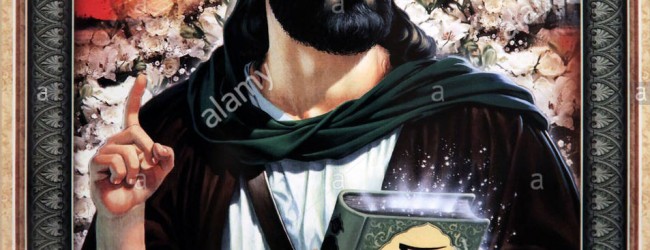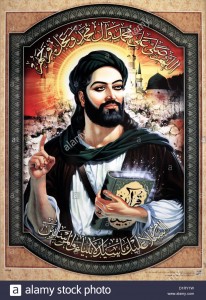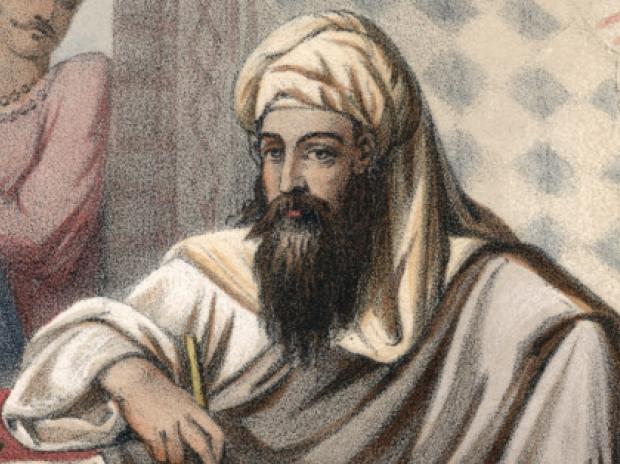
Islamic eschatology is the branch of Islamic theology concerning the end of the world, and the “Day of resurrection” after that, known as Yawm al-Qiyāmah (Arabic: يوم القيامة, IPA: [jawmu‿l.qijaːma], “the Day of Resurrection”) or Yawm ad-Dīn (يوم الدين, Arabic pronunciation: [jawmu‿d.diːn], “the Day of Judgment”).[1] when the annihilation of all life will be followed by its resurrection and judgment by God. When al-Qiyamah will happen is not specified, but according to prophecy there are major and minor signs that will foretell its coming.[2][3] Many verses in the Quran mention the Last Judgment.[4][5]
The main subject of Surat al-Qiyama is the resurrection. The Great Tribulation is described in the hadith and commentaries of the ulama, including al-Ghazali, Ibn Kathir, Ibn Majah, Muhammad al-Bukhari, and Ibn Khuzaymah.[6][7] The Day of Judgment is also known as the Day of Reckoning, the Last Day, and the Hour (al-sā’ah).[8][9][10][11]
The hadith are more specific than the Quran, and describe twelve major signs of al-Qiyamah. At the time of judgment, terrible corruption and chaos will rule. Isa (Jesus) and the Mahdi are central characters in events near the time. The Mahdi will have established a seven-year rule in Medina at which time Jesus will descend from Heaven and battle Masih ad-Dajjal (the Antichrist in Islam). The Mahdi and Jesus will triumph and liberate Islam from cruelty. These events will be followed by a time of serenity when people live according to religious values.[12]
Like other Abrahamic religions, Islam teaches that there will be a resurrection of the dead followed by a final tribulation and eternal division of the righteous and wicked.[13] Islamic apocalyptic literature describing Armageddon is often known as fitna, Al-Malhama Al-Kubra (The Great Massacre) or ghaybah in Shī’a Islam. The righteous are rewarded with the pleasures of Jannah (Paradise), while the unrighteous are punished in Jahannam (Hell)wikipedia

In Islam, a number of major and minor signs foretell the end of days.[27] There is debate over whether they could occur concurrently or must be at different points in time, although Islamic scholars typically divide them into three major periods.[28]
What Islam believes about the End
When reading the Quran, or the Hadith(s), the reader cannot help but understand the end is firmly in view by the Muslim. Muslims do not view this life as the end, but only as the start of the next life. The role of the current life is to determine the next life. The result of the Muslim’s restoration and relationship with Allah through Mohammad.
The subject of the end times is known as eschatology and covers both what happens after death and the events at the end of time. Christianity and Islam share some similar beliefs, with much different outcomes. For one, in Christianity and Islam, Jesus Christ plays a central role in the timing of end; Islam believes the return of Jesus will occur at the end, like Christians. Muslims also believe in the resurrection of both the wicked and the righteous and the final judgment. Islam and Christianity both proclaim an eternal dwelling of the lost and saved, in either Hell or Heaven (Paradise). Therefore, in many ways, the structure of the end (eschatology) is similar to Christianity.
However, Christians and Muslims have two different views of what the final matter is. Both views of the end, however, cannot be true since they are diametrically opposed to each other. The Muslim Jesus descends and converts the world to Islam, kills the Jews, breaks crosses, declares himself a Muslim and gets married. He dies after 40-years.
Therefore, in the Muslim view, the end has a much different outcome compared to the Christian or the Jewish view. All Muslims do not agree on every aspect of Muslim eschatology. Sunnis and Shiites have a different view on the role of Muslim end time figure, known as the Mahdi, who will arrive before the return of Jesus. The Shiites view this person as someone who will establish order in the world and turn people to Islam before the return of Jesus. Even the particular events of the end are not completely spelled out in the Quran. The Hadith supplements what the Quran does not say.
Belief in the end-times or the last days is mandatory in Islam. It is listed as the fifth article of faith.
The Five articles of faith in Islam
truthnet

You must be logged in to post a comment.